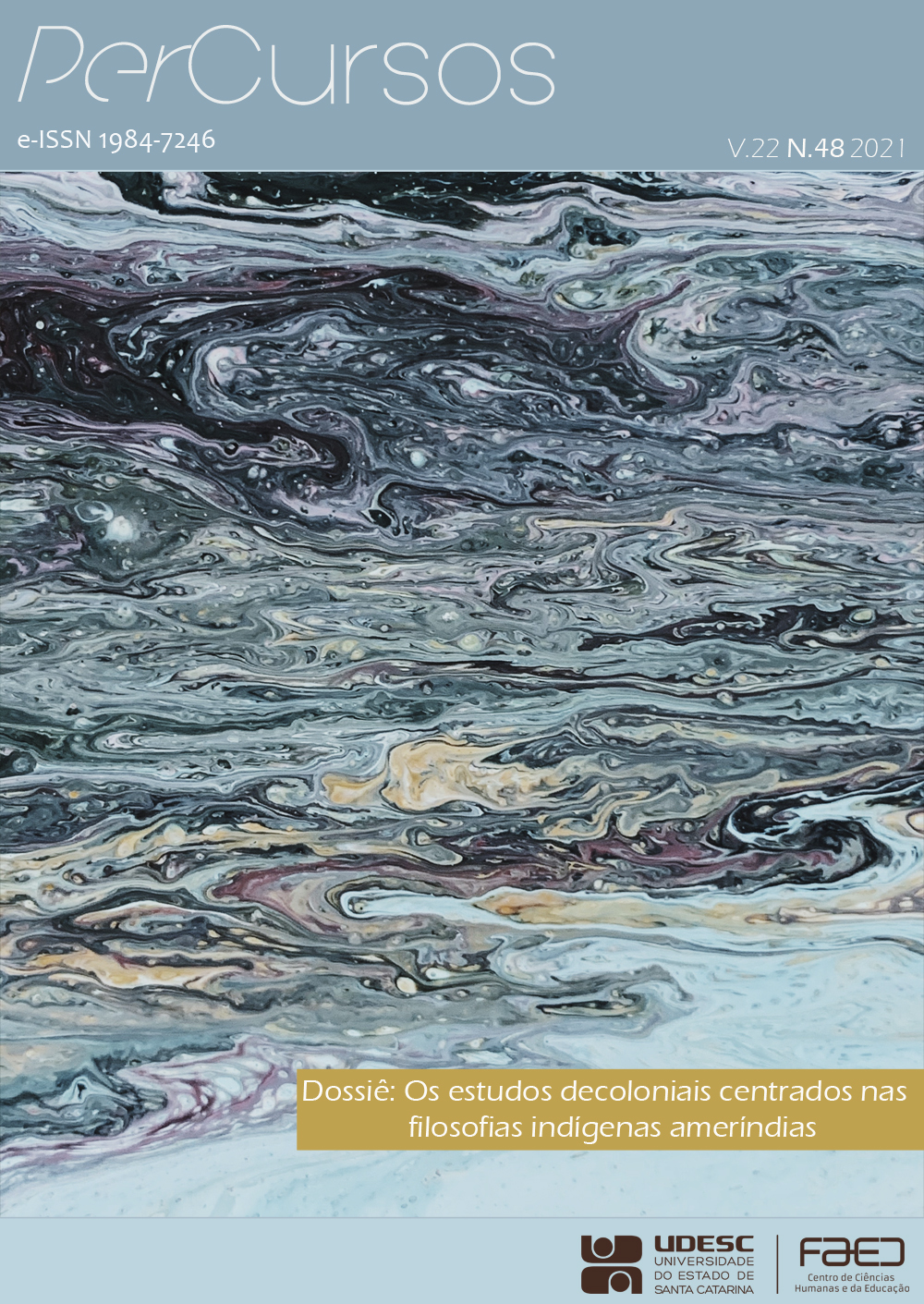Fuduwaadunha indigenous community: life and coexistence in the Auaris region - Yanomami Indigenous Land - Roraima
DOI:
https://doi.org/10.5965/1984724622482021208Keywords:
Yanomami Indigenous Land, Territory, Ye'kuanaAbstract
The study discusses the use of the territory by the Fuduwaadunha communitie, in the region of Auarís in the Yanomami Indigenous Land, in Roraima. The Ye'kuana people live in this region. After the 1960s, the Auaris region underwent changes in landscape and territorial occupation with the arrival of non-indigenous agents, initially the Evangelical Mission of the Amazon (MEVA) and, later, the National Health Foundation (FUNASA), the National Indian Foundation (FUNAI) and the Brazilian Army (Special Border Platoon-PEF). These new actors led to changes in the form of use and occupation of the territory for the people who live there and, in this context, the article seeks to understand the uses of the territory in the regions, and the challenges they have faced in a new context. Among the challenges are the management of the territory in the face of population growth and an increase in communities in the region, with the opening of new areas for agricultural production and conflicts over the use of natural resources (hunting, fishing, extractivism), as well as weaknesses in the limits between social groups.
Downloads
References
GASCHÉ, Jorge; VELA, Napoleón. Sociedad bosquesina: ensayo de antropología rural amazónica, acompañado de una crítica y propuesta alternativa de proyectos de desarrollo. Iquitos: Instituto de Investigaciones de la Amazonia Peruana; Lima: CONCYTEC; Quioto: CIAS, v. 1, 2010.
GUIMARÃES, Silvia. O drama ritual da morte nos Sanumã. Tellus, Campo Grande: UCDB, n. 19, p. 111-128, jul./dez. 2010.
MELATTI, Júlio Cezar. Maciço guianense ocidental retocado em 2009. Brasília, 2014. Disponível em: https://www.google.com.br/?gfe_rd=cr&ei=YqAYVJP9IMnB8gfT4ID4Aw#q=MELATTI%2C+J %C3%Balio+Cezar.+Maci%C3%A7o+Guianense+Ocidental+Retocado+em+2009. Acesso em: 16 de abr. 2014.
MOREIRA, Elaine. Redes sociais e mobilidade espacial entre os Ye’kuana no Brasil. In: SOUSA, Cássio Noronha Inglez et al. (orgs.). Povos indígenas: projetos e desenvolvimento. Rio de Janeiro: Contra Capa Livraria, 2007. p. 75-95.
RAMOS, Alcida Rita. Memórias Sanumã: espaço e tempo em uma sociedade yanomami. São Paulo: Marco Zero: Ed.UnB, 1990.
RAMOS, Alcida Rita. Hierarquia e simbiose: relações intertribais no Brasil. São Paulo: HUCITEC, 1980.
REPETTO, Maxim; CARVALHO, Fabíola. Experiencias de investigación educativa intercultural en la formación de maestros indígenas en Roraima, Brasil. Desacatos, Ciudad de México, p. 50-65, mayo/ago. 2015. Traducción: Marcelo Reyes Aravena. Disponível em: http://www.scielo.org.mx/pdf/desacatos/n48/n48a4.pdf. Acesso em: 20 maio de 2017.
REPETTO, Maxim; BETHONICO, Maria Bárbara de Magalhães Calendários socionaturais: construção participativa de propostas educativas e de gestão territorial em comunidades indígenas de Roraima. Cadernos de Estudos Culturais, Campo Grande, v. 1, p. 87-103, jan./jun. 2019.
SARTORELLO, Stefano Claudio. Construir conocimientos escolares desde el territorio própio: el método inductivo intercultural en el modelo curricular de educación intercultural bilingüe de la unión de maestros de la nueva educación para México (UNEM) en Chiapas. In: PUIG, Andrés Fábregas (coord.). Chiapas: territorio, fronteras, migraciones, desarrollo: visiones interculturales multidisciplinarias. San Cristóbal de las Casas, Chiapas: Universidad Intercultural de Chiapas, 2011. p. 49-85.
SILVA, Castro Costa. Auaris e a história da ocupação: população, recursos naturais e território. 2014. Trabalho de Conclusão de Curso (Bacharelado em Gestão Territorial Indígena) – Instituto Insikiran de Formação Superior Indígena, Universidade Federal de Roraima, Boa Vista, 2014.
SILVA, Castro Costa; BETHONICO, Maria Bárbara de Magalhães. População indígena e saúde na região de Auaris: terra indígena Yanomami. Textos & Debates, Boa Vista, n.18, p. 251-268, jan./jun. 2010.
SILVA, Castro Costa; BETHONICO, Maria Bárbara de Magalhães. O conceito de território para o povo Ye'kuana que habita a região de Auaris: terra indígena Yanomami: Roraima. Revista de Estudos e Pesquisas sobre as Américas, Brasília, v. 3, n. 11, p. 159-176, 2017.
Downloads
Published
How to Cite
Issue
Section
License
Copyright (c) 2021 PerCursos

This work is licensed under a Creative Commons Attribution-NonCommercial-NoDerivatives 4.0 International License.


